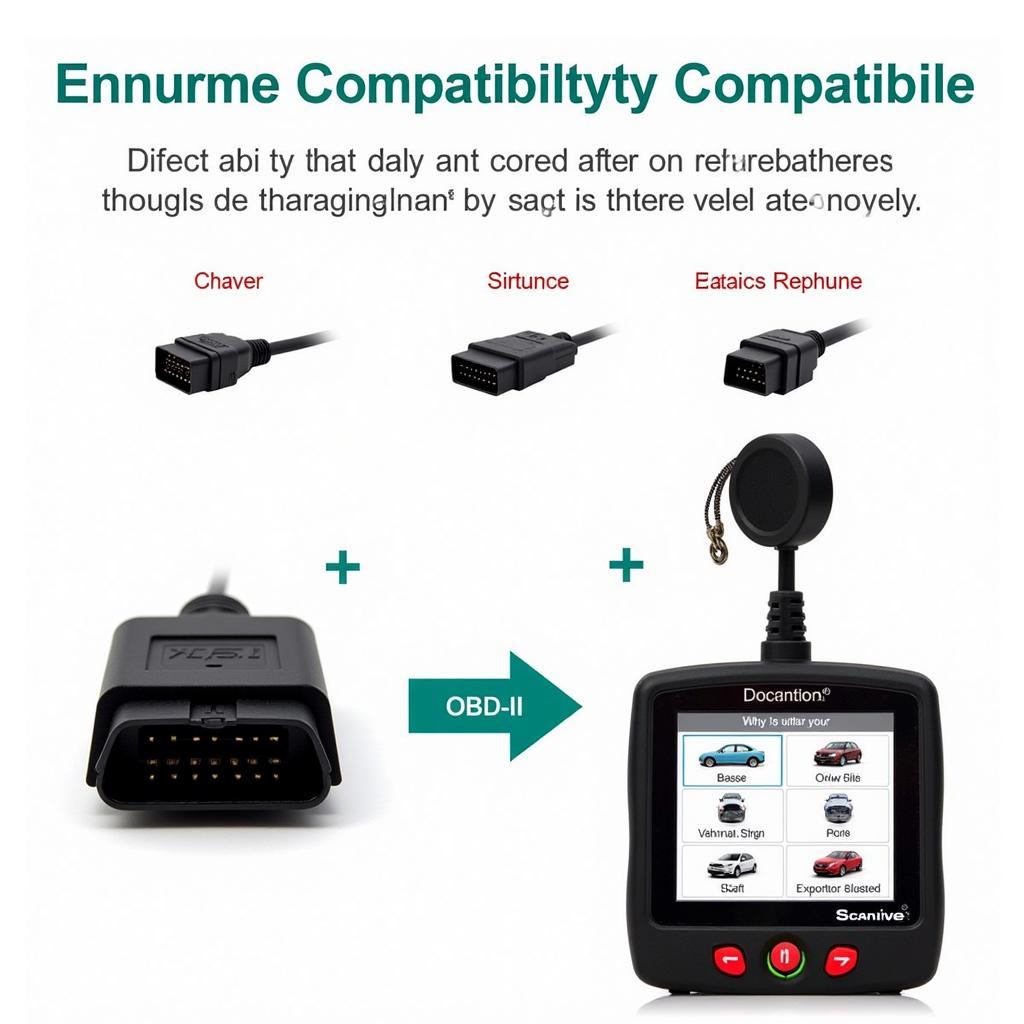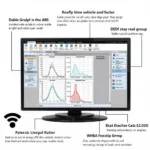A scan tool for instrument cluster is an essential piece of equipment for any mechanic or car enthusiast. It allows you to diagnose and troubleshoot problems with your vehicle’s instrument cluster, saving you time and money. Choosing the right scan tool, however, can be daunting given the variety available. This article will guide you through selecting the ideal scan tool for instrument cluster diagnostics, covering everything from basic functionality to advanced features.
Understanding the different types of scan tools available is crucial. Basic code readers can retrieve diagnostic trouble codes (DTCs) but offer limited functionality. More advanced scan tools offer features like live data streaming, bidirectional control, and special functions for specific vehicle makes and models. A good scan tool for instrument cluster work should allow you to access and interpret data from the cluster, perform tests, and potentially even reprogram certain modules.
Types of Scan Tools for Instrument Cluster Diagnostics
There are several types of scan tools available, each with varying capabilities:
- Code Readers: These are entry-level tools primarily designed to read and clear DTCs. They are less expensive but offer limited functionality for instrument cluster diagnostics.
- OBD-II Scanners: These tools offer more advanced features than code readers, including live data streaming, freeze frame data, and some bidirectional control. They are suitable for basic instrument cluster diagnostics.
- Professional Scan Tools: These are high-end tools designed for professional mechanics. They offer comprehensive functionality, including advanced diagnostics, programming, and coding capabilities. These are the best choice for complex instrument cluster issues.
After this introductory overview, let’s delve deeper into specific features.
A 2007 Chevy Equinox Cluster Sweep Test Scan Tool is an example of a tool tailored to a particular model. Understanding such model-specific tools is key to efficient diagnostics. Choosing the right tool often depends on the specific vehicle you’re working with.
Key Features to Consider
When choosing a scan tool for instrument cluster diagnostics, consider the following features:
- Vehicle Compatibility: Ensure the scan tool is compatible with the make, model, and year of your vehicle or the vehicles you typically work on.
- Live Data Streaming: This feature allows you to view real-time data from the instrument cluster, helping you identify the root cause of problems.
- Bidirectional Control: This feature lets you send commands to the instrument cluster, such as activating gauges or lights, to test its functionality.
- Special Functions: Some scan tools offer special functions for specific vehicle makes and models, such as instrument cluster calibration or reset.
- User Interface: A user-friendly interface with clear navigation and easy-to-understand data presentation is essential.
- Updates and Support: Regular software updates and reliable technical support are crucial for ensuring the scan tool remains compatible with new vehicle models and technologies.
Understanding Instrument Cluster Communication Protocols
Modern vehicles utilize various communication protocols for transmitting data between modules, including the instrument cluster. Common protocols include CAN (Controller Area Network), LIN (Local Interconnect Network), and K-Line. Make sure your chosen scan tool supports the protocols used in the vehicles you intend to diagnose.
What are the common problems diagnosed with a scan tool for instrument cluster?
Common issues include malfunctioning gauges, warning lights, and communication errors. A scan tool can help pinpoint the faulty component within the cluster or identify issues with related modules. For instance, a 2001 Chevy Suburban instrument cluster dead unless OBD scan tool is connected could point towards a communication problem.
Cost and Budget Considerations
Scan tools range in price from affordable code readers to expensive professional-grade tools. Determine your budget and choose a scan tool that offers the necessary features within your price range. While a basic OBD-II scanner might suffice for hobbyists, professional mechanics require more advanced tools. A tool like the Teacii scan tool or the Rbiiit scan tool may offer specific functionalities suitable for different needs.
Expert Insights
John Miller, a seasoned automotive diagnostician, emphasizes, “Investing in a quality scan tool is essential for efficient and accurate instrument cluster diagnostics. A good scan tool can save you countless hours of troubleshooting and prevent costly misdiagnoses.”
Another expert, Sarah Johnson, an automotive electronics specialist, adds, “Understanding the communication protocols used in your target vehicles is crucial when choosing a scan tool. Make sure the scan tool supports the protocols necessary for communicating with the instrument cluster and other related modules.”
Conclusion
Choosing the right scan tool for instrument cluster diagnostics is essential for effectively troubleshooting and resolving instrument cluster issues. Consider your specific needs, budget, and the features offered by different scan tools. By following the guidelines outlined in this article, you can select a scan tool that will help you quickly and accurately diagnose instrument cluster problems, saving you time and money. The EZ Autoxray EZ 6000 scan tool is another example of a potentially useful diagnostic tool.
FAQ
- Can I use a generic OBD-II scanner for instrument cluster diagnostics?
- What are the benefits of using a professional-grade scan tool?
- How do I update the software on my scan tool?
- What are the common communication protocols used in instrument clusters?
- How do I interpret the data displayed by the scan tool?
- Can a scan tool fix instrument cluster problems?
- What should I do if my scan tool is not communicating with the instrument cluster?
Need help with your car diagnostics? Contact us via WhatsApp: +1(641)206-8880, Email: cardiagtechworkshop@gmail.com or visit us at 276 Reock St, City of Orange, NJ 07050, United States. We have a 24/7 customer support team.



